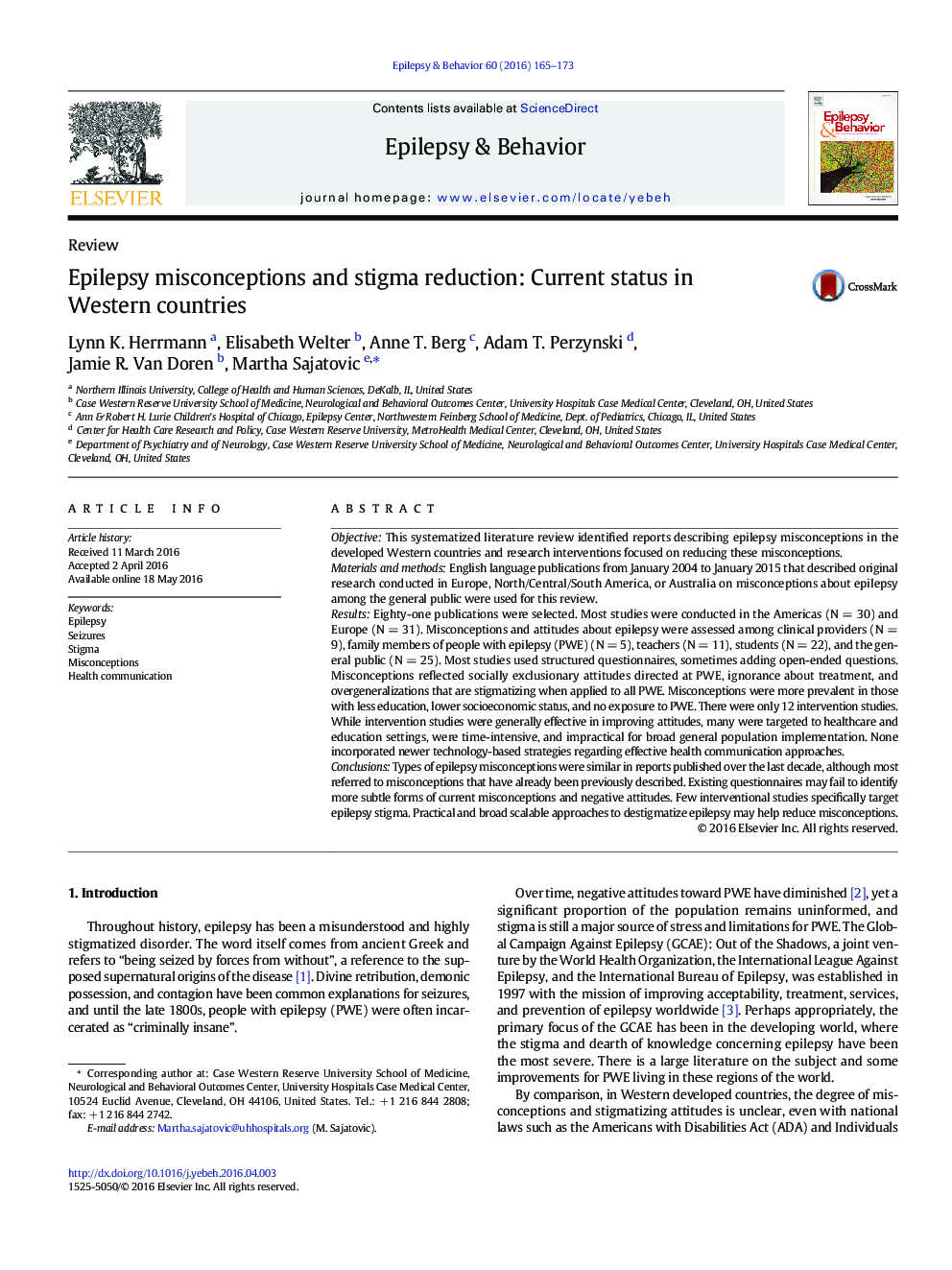| کد مقاله | کد نشریه | سال انتشار | مقاله انگلیسی | نسخه تمام متن |
|---|---|---|---|---|
| 6009868 | 1579831 | 2016 | 9 صفحه PDF | دانلود رایگان |
- Similar types of misconceptions about epilepsy have been reported over the last decade.
- Existing questionnaires may fail to identify more subtle forms of current misconceptions and negative attitudes.
- Few interventional studies specifically target epilepsy stigma.
- Practical and broad scalable approaches to de-stigmatize epilepsy may help reduce misconceptions.
ObjectiveThis systematized literature review identified reports describing epilepsy misconceptions in the developed Western countries and research interventions focused on reducing these misconceptions.Materials and methodsEnglish language publications from January 2004 to January 2015 that described original research conducted in Europe, North/Central/South America, or Australia on misconceptions about epilepsy among the general public were used for this review.ResultsEighty-one publications were selected. Most studies were conducted in the Americas (NÂ =Â 30) and Europe (NÂ =Â 31). Misconceptions and attitudes about epilepsy were assessed among clinical providers (NÂ =Â 9), family members of people with epilepsy (PWE) (NÂ =Â 5), teachers (NÂ =Â 11), students (NÂ =Â 22), and the general public (NÂ =Â 25). Most studies used structured questionnaires, sometimes adding open-ended questions. Misconceptions reflected socially exclusionary attitudes directed at PWE, ignorance about treatment, and overgeneralizations that are stigmatizing when applied to all PWE. Misconceptions were more prevalent in those with less education, lower socioeconomic status, and no exposure to PWE. There were only 12 intervention studies. While intervention studies were generally effective in improving attitudes, many were targeted to healthcare and education settings, were time-intensive, and impractical for broad general population implementation. None incorporated newer technology-based strategies regarding effective health communication approaches.ConclusionsTypes of epilepsy misconceptions were similar in reports published over the last decade, although most referred to misconceptions that have already been previously described. Existing questionnaires may fail to identify more subtle forms of current misconceptions and negative attitudes. Few interventional studies specifically target epilepsy stigma. Practical and broad scalable approaches to destigmatize epilepsy may help reduce misconceptions.
Journal: Epilepsy & Behavior - Volume 60, July 2016, Pages 165-173
